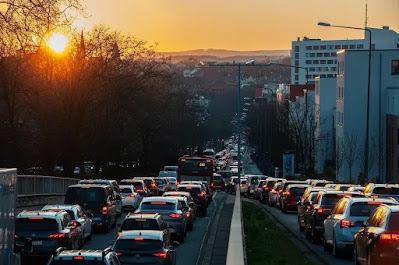In my childhood and adolescence, I imagined England as a quintessential cycling country. After all, those Raleigh, Dunelt, Philips and Dawes three-speed bikes—“English Racers”—took people between homes, farms, factories and schools. At least, that was the image of the country we got from movies and magazines. And those “English Racers” seemed, on the eve of the ‘70’s Bike Boom, as exotic as the latest Tour de France or World Championship track bike looks today—never mind that three-speeds bore as much relation to those bikes as a hay wagon to a Formula 1 car.
In other words, to neophyte cyclists like me who had never been more than a state or two—let alone an ocean—away from home, Albion seemed like today’s Amsterdam or Copenhagen.
Of course, my first trip there—the first part of my first European bike tour, in 1980–would change that image for me. To be sure, I saw more people riding for transportation and recreation than I encountered in New Jersey, where I had just graduated from Rutgers College. But people, while helpful, wondered why an American would come to their country—to ride a bicycle.
Perhaps that experience, and subsequent visits, make something I read more plausible: According to a newly-released government survey, 7 out of 10 Britons never ride a bicycle.
Perhaps even less surprising are the reasons why people don’t ride and what might persuade them to get on the saddle. They’re less surprising, at least to me, because they’re the same reasons I hear in my home city and nation of New York and the United States.
The chief reason why people on both sides of the pond won’t ride, they say, is that they wouldn’t feel safe. Where perceptions might diverge a bit is in what might make them safer. While a majority New Yorkers and Americans say bike lanes might entice them, only 29 percent of English respondents cited them. On the other hand, the two most common improvements—safer roads and better road surfaces—were cited by 61 and 51 percent, respectively, of English people.
What accounts for their perceptions? I think it might be that even if the vast majority of English people don’t ride bicycles, many still have memories of parents, grandparents or other adults pedaling to the shop or classroom on the same roads used by motorists. In other words, they didn’t see cyclists segregated from traffic.
Few Americans have such memories. Moreover, they grew up inculcated with the idea that bicycles were for kids who weren’t old enough to drive.
So, the British survey is interesting in that it shows a common perception—cycling isn’t safe—but a difference in the perception of what could make it safer and therefore more appealing.

